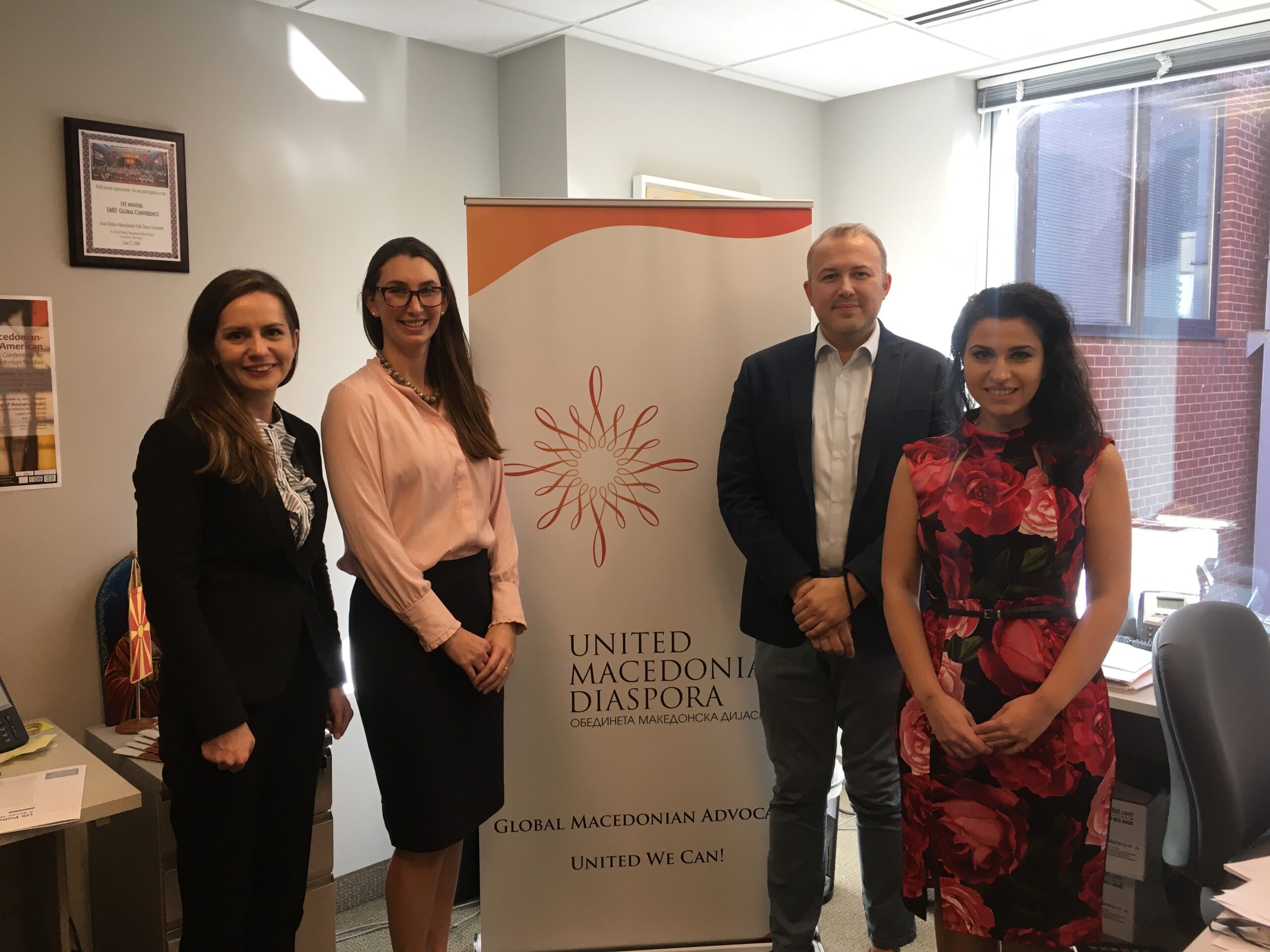On October 17, 2018, UMD met with the new Macedonia Desk Officer of the U.S. Department of State, Jill W. Dietrich, at UMD’s offices in Washington, D.C. The meeting was a follow-up to the one held in early August 2018 between UMD President Metodija A. Koloski, Acting Deputy Assistant Secretary of State for Europe, Matthew Palmer, EUR/SCE Acting Director Susan Falatko, and Jill Dietrich. During that meeting, Koloski stressed UMD’s strong opposition to holding a referendum on Macedonia’s name and to allocating USAID funds to support that referendum.
In yesterday’s meeting, UMD representatives harshly criticized calls for changes to Macedonia’s constitutional name and associated provisions outlined in the Prespa Agreement. UMD also expressed vigorous opposition to recent U.S. Department of State statements, which appeared to wrongly recognize the results of the September 30th referendum as successful. The State Electoral Commission (SEC) of Macedonia pronounced the referendum legally invalid, as the referendum did not meet the 50% turnout threshold mandated by the constitution.

UMD objects to the recent letter from Assistant Secretary of State for European and Eurasian Affairs Wess Mitchell to the VMRO-DPMNE opposition leader, which gave the impression that the U.S. is favoring one political party over another in Macedonia. This letter, coupled with Vice President Pence’s statement which appeared to urge the changing of Macedonia’s constitution, are noteworthy and troubling examples of inappropriate U.S. meddling in the internal affairs of Macedonia.
Putting the onus on Macedonia to make constitutional changes goes against a key stated tenet of the Trump administration — non-interference in the internal affairs of sovereign nations. The U.S. is attempting to force Macedonia to change its name to appease the demands of Greece — a counterproductive and inappropriate act. Macedonia’s consideration for NATO and EU membership should not rest on the name issue. Instead, the U.S. should help Macedonia in satisfying the criteria for membership, which necessitates structural reforms, rule of law, and strong governmental institutions.
UMD has also expressed ongoing concerns over the alleged interference of U.S. Ambassador Jess Baily in the everyday lives of Macedonians – in particular pressuring members of Parliament to vote for constitutional changes and requested for his immediate recall from his post as Ambassador in Macedonia. Such actions have harmed the U.S. image abroad and have decreased Macedonian support for joining NATO and the EU. UMD supports U.S. citizens demanding investigations into Ambassador Baily’s conduct, including the inappropriate use of U.S. taxpayer dollars to sway Macedonians to support one outcome over another.
UMD firmly believes that U.S. support of the Prespa Agreement undermines democracy in Macedonia and will lead to even more instability in the region.
Pictured Koloski and Palmer, and Koloski, Dietrich, UMD Macedonia Director Veronika Tomova and UMD International Policy and Diplomacy Fellow Toveli Schmuland.

